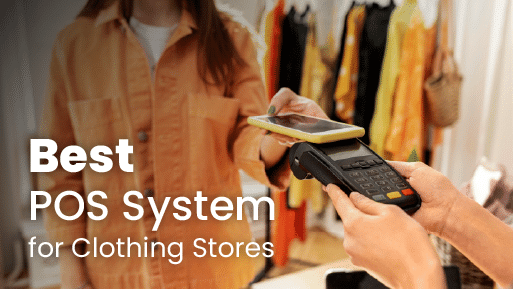In this post, we will explore four POS systems for retail clothing stores, highlighting their key features, pros and cons, and pricing structures to assist you in making an informed decision.
The ideal POS clothing store solution can help store owners streamline operations, efficiently manage inventory, and deliver an exceptional shopping experience to customers.
However apparel businesses require some specific features for their operations. And not all POS systems have them. It’s important to look for point of sale software that can handle size matrices, vast inventory catalogs, advanced CRMs, and more. Read on to learn more about the best POS for apparel retailers.
? Key Takeaways:
- eHopper: Best for inventory management and product variations
- Lightspeed Retail: Best for apparel multi-channel integration
- ConnectPOS: Best for customer experience and loyalty programs
- Magestore POS: Best for Magento integration and omnichannel clothing retail
- Celerant POS: Best for 3D product matrix
Best Clothing Store Point of Sale System Comparison Table
Product
Best For
Price
Processing Fees
Key Features
eHopper

Best for:
Inventory Management and Product Variations
Price:
From $10/month
Processing Fees:
No
Key Feature:
Robust inventory matrix
Print barcode labels
Payins and payouts
Best for:
Multi-Channel Integration
Price:
From $109/month
Processing Fees:
Yes
Key Feature:
Multi-channel capabilities
Clothing store inventory management
Automated supplier orders & receiving
Best for:
Customer Experience and Loyalty Programs
Price:
Contact sales
Processing Fees:
Yes
Key Feature:
Self-checkout clothing POS
Multiple payment methods
AI facial recognition
Best for:
Magento Integration and Omnichannel Retail
Price:
Custom pricing
Processing Fees:
Yes
Key Feature:
Product management
Order fulfillment
Real-time sync with Magento
Best for:
Magento Integration and Omnichannel Retail
Price:
Custom pricing
Processing Fees:
Yes
Key Feature:
Product management
Order fulfillment
Real-time sync with Magento
1. eHopper: Best for Inventory Management and Product Variations
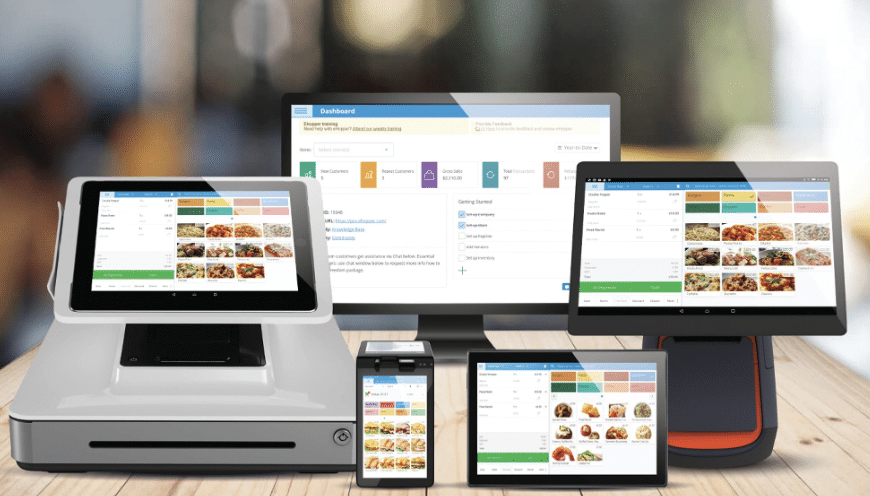
EHOPPER overview
eHopper is an excellent POS solution for clothing stores due to its user-friendly interface and robust features tailored for retail businesses. With eHopper, clothing store owners can easily manage inventory, process transactions, and track sales trends. This allows them to streamline operations and improve efficiency. It offers barcode scanning, real-time stock tracking, and integrated reporting.

Pros
- Great customer support
- Easy to use
- Device agnostic
Cons
- Not great reporting features
- No phone app
- No refund without a card present or offer partial refunds
eHopper Pricing
Essential Plus
$10/mo
- Inventory management
- Tip management
- Customer management
Freedom
$24.49/mo
- Clock in/clock out
- Inventory matrix
- Inventory adjustments
Omnichannel
35.99/mo
- 1 Hour a month of phone support
- Barcode manager
- Low stock alerts
Key Features
Robust inventory matrix: eHopper’s inventory matrix feature makes it an exceptional POS system for clothing stores and boutiques. It allows retailers to create and manage an extensive range of product variations effortlessly, seamlessly combining attributes such as color, size, and style into unique item combinations. Each variation can be assigned its price, UPC, and SKU, enabling precise inventory tracking and pricing flexibility. Moreover, you can tailor product offerings and pricing across multiple locations.
Print barcode labels: The print barcode labels feature streamlines operations for clothing stores by providing a seamless way to create and print barcodes directly from the POS system. Clothing store owners can effortlessly export and print barcode labels, customizing them with item names, prices, and quantities. Additionally, eHopper offers a range of label size options, ensuring compatibility with various printing requirements.
Payins and payouts: This feature allows users to manually add or subtract specific amounts of money from their cash register. Additionally, eHopper displays an estimated amount of cash in the cash drawer, enabling users to reconcile their records effectively. Users can also attach notes to each paying or payout action, facilitating record-keeping and documentation. All payins and payouts are recorded and reflected in the reporting module.
Voids and refunds: eHopper’s intuitive voids and refunds functionality streamlines merchants’ operations, allowing them to address customer order issues swiftly. You can void an entire order at any point on the same day it was placed. Furthermore, merchants can easily refund individual items or an entire order. eHopper empowers merchants with manual refund capabilities, allowing them to edit the refunded amount per their specific requirements, ensuring a seamless and customer-centric experience.
Pros
According to some customer on-site reviews, eHopper offers great customer support. The staff is described to be helpful, friendly, and patient
- Software is relatively easy to understand
- Device agnostic
Cons
- Inability to provide a refund without a card present
- some reviews mentioned that the software does not offer partial refunds
- No phone app
- Basic reporting only
Pricing
- Essential Plus: Their entry-level paid plan is just $10 per month. It allows for one user license, 1000 products, and 1000 monthly transactions. It includes basic features like inventory management, customer management, modifier management, and simple reporting.
- Freedom: This plan costs $24.49 per month and increases the limits on the number of users, products, and transactions.
- Omnichannel: Their most feature-rich plan comes in at $35.99 per month and includes everything in the Freedom plan, along with features like eCommerce, EBT, and up to one hour per month of phone support.
2. Lightspeed Retail: Best for Multi-Channel Integration
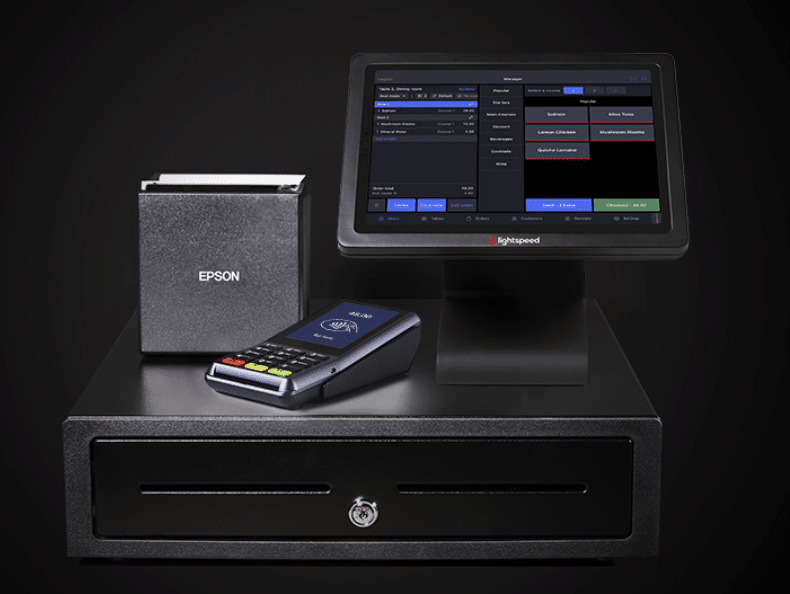
Lightspeed Retail overview
Lightspeed Retail is another strong solution for a clothing store. Their system streamlines tasks like inventory management and customer profiles, allowing you to focus on giving customers a great shopping experience. They also offer features to help you buy and receive clothing efficiently.
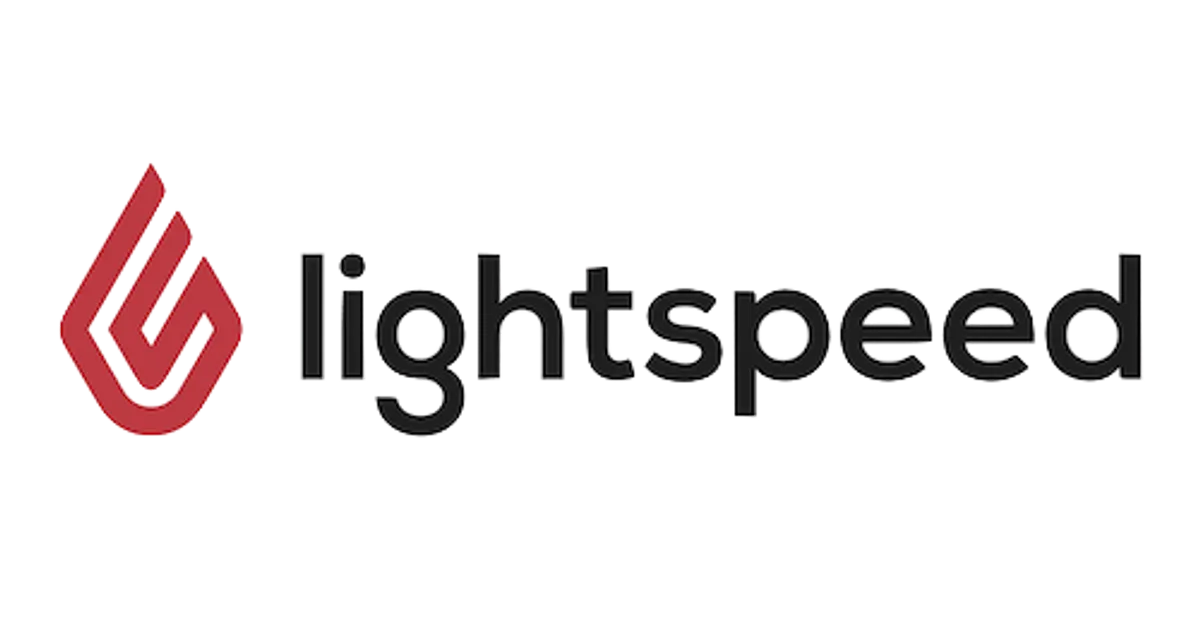
Pros
- Great reporting features
- Easy user-friendly interface
- Specific inventory features for clothing stores
Cons
- Poor customer support
- Not much flexibility in payment processing
Lightspeed Retail Pricing
Basic
$109/mo
- Registers
- Free training and onboarding resources
- Dedicated account manager
Core
$179/mo
- Lightspeed B2B
- Accounting
- eCommerce
Plus
$289/mo
- Omnichannel loyalty
- Advanced reporting
Key Features
Multi-channel capabilities: With Lightspeed, clothing retailers can seamlessly reach their customers across various platforms, including their websites, popular online marketplaces, and social media channels like Instagram and Facebook. Moreover, Lightspeed Retail offers flexibility in order fulfillment, empowering clothing stores to cater to their customers’ preferences through click-and-collect or shipping options.
Clothing store inventory management: The software allows for seamless product importing, either individually or in bulk, enabling efficient tracking and management of merchandise. Additionally, Lightspeed Retail offers the flexibility to track intricate details such as sizes, colors, and even custom fields for unique product attributes, making it an ideal choice for clothing stores with diverse product lines.
Automated supplier orders & receiving: Lightspeed Retail offers automated supplier orders & receiving with Lightspeed B2B. Lightspeed B2B allows retailers to easily access and browse through a vast catalog comprising millions of products from many popular fashion, sporting goods, and gift brands. This catalog allows retailers to add desired products to their inventory, complete with detailed information such as descriptions, images, and UPCs, all with just a single click. Moreover, Lightspeed Retail’s integration with NuORDER enables you to import purchase orders into the POS system, eliminating manual data entry and reducing the risk of errors.
Customer management capacities: Lightspeed Retail equips businesses with robust customer management tools to cultivate loyal shoppers and drive repeat sales. At the point of checkout, customer details can be captured and added to a continuously growing database. Lightspeed’s efficient Quick Keys and product lookup features also streamline the checkout process, providing a frictionless experience that keeps customers returning.
Pros
- Item management and reporting
- User-friendly interface and advanced customization
Cons
- Not much flexibility in payment processing
- Poor customer service – some customers mentioned that the company’s team frequently markets and sells additional features or services that fail to function as intended, yet they neglect to provide any response or support after the sale is made
Pricing
Lightspeed Retail offers several pricing tiers:
- Their entry-level plan, Basic, costs $109 per month and provides a basic retail point of sale system and rudimentary inventory tracking capabilities.
- The next tier-up is the Core plan, which costs $179 per month and adds more advanced accounting features and tools for integrating with an eCommerce platform.
- Businesses can opt for the Plus plan, which includes a customer loyalty program and analytical reporting functionalities for $289 per month.
3. ConnectPOS: Best for Customer Experience and Loyalty Programs
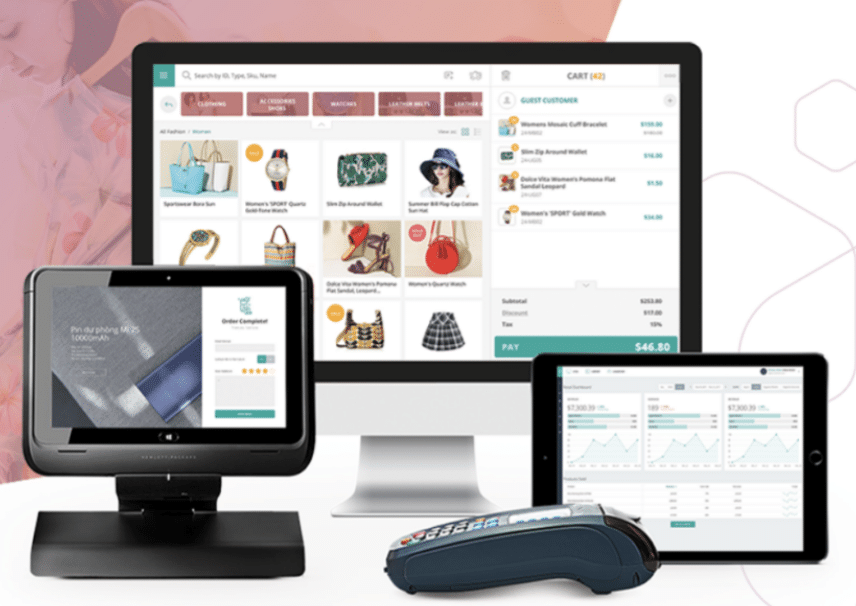
Connect POSoverview
ConnectPOS positions itself as one of the best POS solutions in the industry. ConnectPOS is a feature-rich POS system specifically designed to cater to the unique needs of clothing stores. From efficient inventory management and personalized recommendations to convenient payment options and innovative technologies like facial recognition, ConnectPOS empowers clothing retailers to deliver exceptional customer experiences and drive business growth.
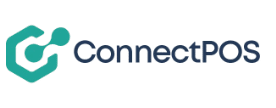
Pros
- Free trial
- Simple stock control
- Data backup
Cons
- Free trial
- Simple stock control
- Data backup
ConnectPOS Pricing
ConnectPOS is a subscription-based model point of sale. Contact their sales team for more details.
Key Features
Multiple variants and bundles: ConnectPOS allows clothing retailers to efficiently manage their inventory by sorting items based on different attributes such as brand, color, size, or material. Furthermore, it provides comprehensive management options, enabling retailers to bundle individual items and assign them unique SKUs.
Self-checkout clothing POS: ConnectPOS enhances in-store convenience by offering a self-service app that allows customers to finalize purchases via barcode scans at a self-checkout kiosk.
Multiple payment methods: The system supports modern wallets like Apple Pay, allowing for a quick and secure checkout experience. Furthermore, customers can conveniently utilize store credits and reward points, buy online, pick up in-store (BOPIS) options, and even split payments, ensuring maximum flexibility and customer satisfaction.
AI facial recognition: ConnectPOS incorporates cutting-edge AI facial recognition technology for secure customer identification. This feature allows for automatic enrollment and participation in loyalty programs, encouraging repeat business and fostering customer loyalty.
Reward every purchase: ConnectPOS offers tailored recommendations, matching designs, and promotions based on their preferences and purchase history. This feature lets clothing stores suggest complete outfits or complementary items, encouraging customers to make full combo purchases and create a fully furnished wardrobe.
You can also explore our ConnectPOS Reviews for a deeper look at its features and benefits.
Pros
Free trial
Simple stock control
Data backup
Great tablet features
Cons
Customer service isn’t always that great
- Settings aren’t easy to find
- Frequent POS glitches – the system often fails to function properly and is highly susceptible to generating mistakes
Pricing
ConnectPOS is a subscription-based model point of sale. The pricing is not available on the company’s website. You’ll have to contact the sales team to learn more about the pricing structure.
4. Magestore POS: Best for Magento Integration and Omnichannel Retail
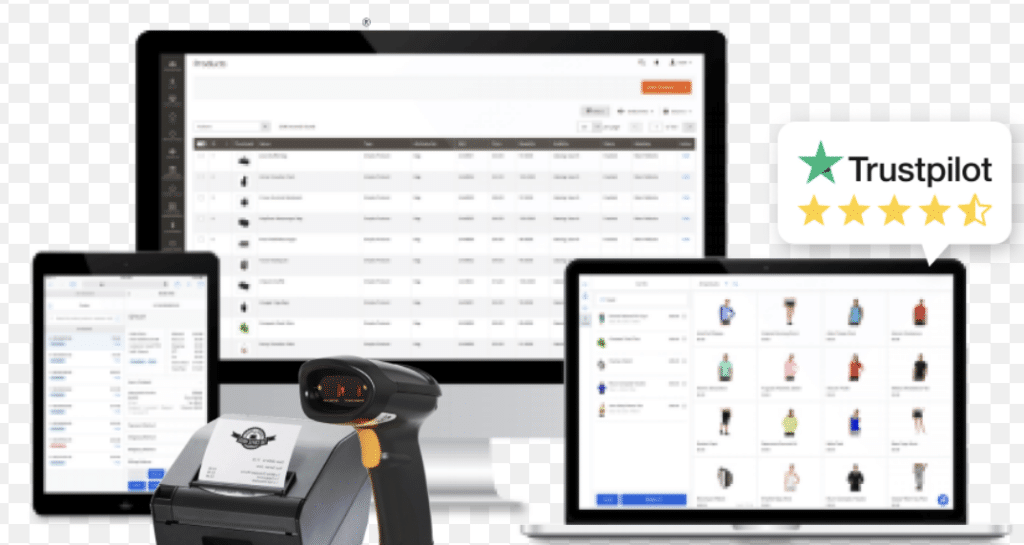
Magestore POS overview
Magestore offers a comprehensive and seamless solution for fashion boutiques, providing an integrated POS system that seamlessly connects with the Magento backend. This integration ensures real-time data synchronization across online and offline channels, enabling businesses to deliver a consistent and cohesive shopping experience for their customers.

Pros
- Great customer support
- Recommended for Magento integration
- Customize the functions you want
Cons
- Learning curve
- No free trial
- Additional development work required
Magestore POS Pricing
Their website does not clearly indicate pricing, but their pricing model is a one-time payment rather than a subscription-based plan.
Key Features
Real-time sync with Magento: One of Magestore’s critical features is its ability to maintain real-time synchronization with the Magento backend. This ensures that any changes made to inventory, products, or customer data are instantly reflected across all channels, whether online or offline.
Product management: Magestore simplifies product management, allowing fashion boutiques to set up and maintain their catalogs across all channels. With support for product variations such as size and color, businesses can offer their customers diverse options, ensuring they can find the perfect item that meets their preferences.
Loyalty programs: To enhance customer loyalty and encourage repeat business, Magestore offers a robust loyalty program. Fashion boutiques can implement reward points systems, gift card programs, or other promotional initiatives to incentivize customers and foster long-term relationships.
Order fulfillment: Magestore’s order fulfillment capabilities are designed to accelerate the processing time for online and offline orders. With innovative order control features and access to real-time fulfillment reports, fashion boutiques can stay more organized and ensure that orders are efficiently processed and delivered to customers.
Inventory management: Accurate inventory management is crucial for any retail business, and Magestore excels in this area. The system allows fashion boutiques to monitor inventory movement and status across multiple locations, ensuring that stock levels remain accurate and up-to-date. This centralized inventory management system helps prevent stockouts, overstocking, and other inventory-related issues.
Inventory management headache?
KORONA POS makes stock control easy. Automate tasks and get a clear picture of your entire inventory.
Stock reports: Magestore provides comprehensive stock reports so fashion boutiques can identify slow-moving products. With this valuable insight, businesses can create targeted promotions and strategies to move inventory and boost sales.
Pros
Responsive and efficient collaboration
Recommended for Magento integration
Customize the functions you want with its open API
Some customers expressed their satisfaction with the fact that the platform offers a vast array of customization possibilities
Cons
- No free trial available
- Learning curve
- Initial setup and customization challenges
- Additional development work required
- Feature-rich platform with room for improvement
Pricing
Magestore POS does not offer a uniform pricing structure for its inventory management software; instead, the cost varies based on several factors, such as the number of stores, the intricacy of the business operations, and the extent of support and services required. Their pricing model is a one-time payment. This means you only have to pay once to get the Magento POS license and use it as long as you want.
5. Celerant POS: Best for 3D product matrix
Celerant POS Overview
Celerant provides a POS system for apparel retailers, offering features like a 3D product matrix to manage variations in size, color, and style.
It integrates in-store and online inventory, supports eCommerce, and offers digital marketing tools. Celerant also provides mobile applications for inventory management and customer engagement.
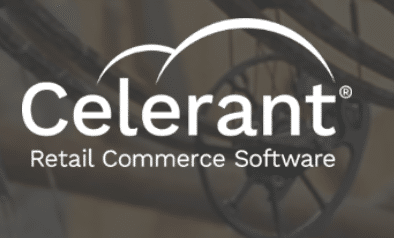
Pros
- Highly customizable
- Grows with your business
- Advanced inventory control
Cons
- Steep learning curve
- Early termination fees
- High upfront cost
Pricing
Cumulus Retail POS
$125/mo
- Up to five back-office users
- Inventory management
- Customer loyalty programs
Cumulus Retail eCommerce
$250/mo
- Mobile-friendly templates
- Smart product search
- Order fulfillment tools
Cumulus Retail All-In-One
$350/mo
- In-store and online capabilities
- Integrated retail solution
- POS and web integration
Stratus Enterprise
Custom pricing
- Designed for larger businesses
Key Features
Always On’ Point of Sale (POS) Functionality: Celerant’s POS system is designed to remain operational even during internet outages. This ensures that retailers can continue processing sales, accessing customer data, and managing inventory without interruption, maintaining seamless store operations and enhancing customer satisfaction.
Mobile Shopping Applications: Celerant provides mobile apps for both iOS and Android platforms, allowing retailers to offer a personalized shopping experience on customers’ mobile devices. These apps integrate with the retailer’s back-office system, ensuring real-time updates for products, inventory, and orders. Features include push notifications for personalized marketing, support for ‘Buy Online, Pickup In-Store’ (BOPIS) and curbside pickup, and seamless management of orders across all channels.
3D Product Matrix for Inventory Management: Celerant’s inventory system includes a 3-dimensional product matrix that simplifies managing products with multiple attributes, such as size, color, and style. This feature allows for comprehensive searches, efficient order creation, and detailed reporting based on various product attributes, streamlining inventory management for retailers with complex product lines.
Integrated Vendor Catalogs and Dropshipping: Celerant integrates with vendor catalogs, enabling retailers to offer a wider range of products without holding additional stock. Through these integrations, retailers can access vendors’ product feeds, sell items they don’t physically stock, and have them drop-shipped directly to customers. This ‘endless aisle’ approach helps capture more sales by expanding product offerings without increasing inventory costs.
Personalized Digital Marketing Tools: Celerant offers built-in digital marketing tools that allow retailers to create personalized email campaigns based on customer data and purchase history. The system supports automated triggers for events like cart abandonment or birthdays and provides analytics to measure campaign effectiveness. This targeted approach helps increase customer engagement and drive sales.
Pros
Real-Time Multi-Location Management: Retailers appreciate the ability to monitor sales and inventory across multiple locations instantly. This feature enhances decision-making and operational efficiency.
Comprehensive Inventory Management: The system’s robust inventory management allows tracking of stock levels across various locations, helping retailers avoid stockouts and overstocking. Users value the ability to manage inventory by size, color, and other attributes, simplifying the tracking of specific items.
Integrated eCommerce Platform: Celerant’s integration of in-store and online sales provides a unified approach, ensuring consistent inventory and sales data across all channels. This integration is beneficial for retailers looking to expand their online presence.
Customizable Reporting and Analytics: The system offers customizable reports on sales, inventory, and customer behavior, providing valuable insights for informed decision-making. Users find this flexibility helpful in tailoring reports to their specific business needs.
Cons
Complex Implementation and Learning Curve: Some users report that the system’s extensive features can make it complex to implement and learn. This complexity may require significant time and training for staff to become proficient.
Customer Support Challenges: There are mixed reviews regarding customer support, with some users experiencing slow response times and difficulty resolving issues. Effective support is crucial, especially during the initial implementation phase.
System Performance Issues: A few users have encountered system instability, such as software glitches and slow performance, which can disrupt daily operations. Ensuring system reliability is essential for maintaining business continuity.
High Cost and Additional Fees: Some retailers find Celerant’s pricing to be on the higher side, with additional costs for certain features and support services. Businesses should assess whether the system’s benefits justify the investment.
Pricing
Cumulus Retail POS ($125/mo): This plan includes one POS and up to five back-office users. It includes key features like inventory management, customer loyalty programs, employee management, and reporting. Adding extra features may increase the cost.
Cumulus Retail eCommerce ($250/mo): This plan is tailored for online stores. It includes mobile-friendly templates, smart product search, shopping cart, and order fulfillment tools.
Cumulus Retail All-In-One ($350/mo): The All-In-One subscription gets you in-store and online capabilities, providing a complete, integrated retail solution.
Stratus Enterprise: Designed for larger businesses, this is a custom plan with pricing available on request based on your specific needs and the scale of your operations.
How to Find the Best Apparel POS
Research top contenders
- Identify your needs: Consider factors like store size, budget, and desired features.
- Shortlist popular options: Square, Shopify POS, Lightspeed Retail, Celerant Retail, and Clover POS are some popular choices.
- Read reviews and comparisons: See what other clothing stores are using and why.
Top features for clothing stores in a POS system
- Matrix Inventory: Apparel businesses often sell products in various sizes, colors, and styles. A POS with matrix inventory capabilities will efficiently manage these product variations.
- Sales and Promotions: Clothing stores must be able to create and manage sales, discounts, and promotions. Look for a POS that allows you to set up complex pricing rules, buy-one-get-one deals, and other promotional offers.
- Customer Management: A good apparel POS should have a built-in customer relationship management (CRM) module. This feature lets you store customer information, track purchase histories, and implement loyalty programs.
- Reporting and Analytics: Comprehensive reporting and analytical tools provide valuable insights into your business performance, sales trends, and customer behavior. Look for a POS that offers customizable reports and real-time data analysis.
- Mobile POS: A mobile POS solution allows you to process sales anywhere in your store, reducing checkout lines and improving customer service.
- eCommerce Integration: If you have an online store, look for a POS that seamlessly integrates with your eCommerce platform. This lets you manage inventory, orders, and customer data across multiple sales channels.
Frequently Asked Questions: Best POS System For Retail Clothing Stores
What is the best POS system for retail?
There isn’t a single “best” POS system for all retail businesses, as the best choice depends on your specific needs and budget. However, some of the top contenders for 2024 include KORONA POS, Epos Now, Clover, Square, Square Retail, and Lightspeed Retail.
What is POS in the garment industry?
The POS system in the garment industry is the electronic system located wherever a transaction occurs. It serves as the terminal used for checkouts in clothing and apparel stores.
What is the best POS system for small boutique?
The best POS system for your boutique depends on your needs. Square for Retail is a great all-around option, especially for budget-minded businesses. Shopify POS is ideal if you want to integrate your online store with your physical boutique. Lightspeed POS is strong for managing a large or complex inventory.
Best POS System For Retail Clothing Stores: Wrapping Up
Choosing the right POS system for your retail clothing store ensures seamless operations, effective inventory management, and a delightful customer experience. Each of the four POS systems discussed – eHopper, Lightspeed Retail, ConnectPOS, and Magestore POS – offers unique features and capabilities that cater to the specific requirements of clothing retailers.
By carefully evaluating your business needs, budget, and desired functionalities, you can make an informed decision and select the POS solution that best aligns with your clothing store’s objectives. Ultimately, the right POS system will streamline processes, enhance efficiency, and provide a competitive edge in the dynamic retail landscape.
While KORONA POS isn’t a great fit for many apparel businesses, it is a popular choice for many thrift stores, especially chains and franchises. To learn more about who else KORONA POS can work for, click below.

